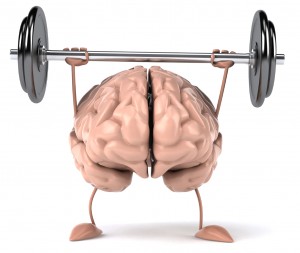Preventing dementia
News
Smoking increases risk of dementia say WHO
‘Grow your brain in old age by walking three times a week’
Studies at the University of Pittsburgh have shown that taking a short work three times a week can increase the size of those parts of your brain linked to planning and memory. The prefrontal cortex and hippocampus increased in size by only 2% or 3% during their studies, but this is enough to offset the steady shrinkage doctors expected to see over the same period.
‘It may sound like a modest amount but that’s actually like reversing the age clock by about one to two years.’
Professor Kirk Erickson Neuroscientist, University of Pittsburgh
There is nothing you can do that is guaranteed to prevent dementia but, there are two simple steps you can take to help reduce your risk of developing the condition and slowing its rate of progress.
‘Your body may have to last for 90 years or more.
Look after it’
The two key steps to help you avoid dementia are:
- Keeping fit and in good health
- Keeping your mind mentally active
Keep fit and stay healthy
Lack of exercise and poor diet can cause weight gain, which may result in obesity, diabetes and vascular dementia. Regular exercise can play a major part in avoiding dementia – not to mention many other health problems. Doctors recommend exercising at least three times a week. A half hour walk is all you need to do.
Ideally as you grow older you will maintain a regular exercise programme. If you’ve had a fall or suffer from a medical condition then do take advice from your GP or another health care professional because it is important that any exercise programme is tailored to you physical condition and needs. The main goal of exercise is to maintain muscle strength. Keeping your leg and ankle muscles strong is vital to help you maintain proper balance.
Avoiding falls and fractures
Falls and fractures in people aged 65 and over account for more than four million hospital bed days each year in England alone. Over 70,000 hip fractures occur annually as a result of falls. An older person has a 50% chance of having their mobility reduced as the result of a fall so they can result in a loss of independence. More than 10% of older people who suffer a fall are afraid to go out for fearing of falling.
You can reduce your risk of suffering a fall by half by undertaking a regular exercise regime
If you are looking for professional help then speak to your GP first. They may able to recommend someone locally. You can also find qualified exercise instructors in the Falls Directory
Workouts for the mind
Mental exercises – The Japanese Memory Group*
The Japanese Memory Group is based on the Japanese ethos of high regard for older people. They call it ‘Smart Ageing.’ Professor Kawashima has demonstrated that regular reading aloud, mental arithmetic and writing, stimulates brain activity in older people and can restore communication and independence in those with clinically diagnosed dementia. The activity should be carried out for a minimum of 20 minutes twice a week.
This work was first published in 2003. By 2007 evidence showed it could stave off Alzheimer’s Disease in elderly patients. Even using textbooks from 50 years ago helped improve the memory recall of other more recent events of those taking part in the study.
BangorUniversity has produced evidence to show that undertaking mental activity in groups is more effective than doing it alone or in pairs. They call it ‘Rementia’ and believe it can reverse some brain deterioration.
* With thanks to Dr Jennifer Bute for this information
Keep your brain active by taking part in social activities, sports, clubs, voluntary work, crosswords, jigsaws, reading. Anything that keeps the grey cells ticking over!

